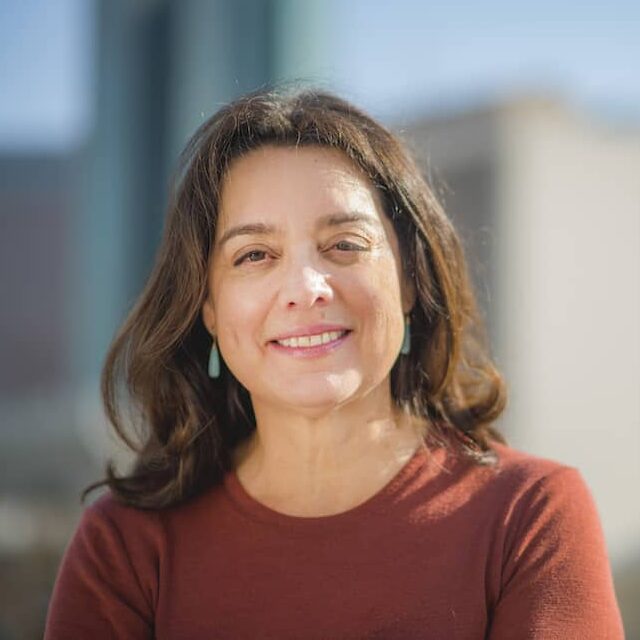
Dick Carleton came to Breckenridge from Virginia when he was 24. He had a business degree from Virginia Tech, a ‘69 Volkswagen bug, $100 and three friends willing to share a crappy two-bedroom condo with no insulation. It was awful. It was glorious.
He was “full of rebel spirit” in a town of kindreds and so he never left. He grew up with Breckenridge, jumped into the restaurant business in ‘81, married Cathy, his wife of 27 years, had three kids, became a city councilman.
Forty years passed. Time gave him no more preparation for 2020 than it had given anyone else. It sure as hell didn’t prepare him for the drumbeat of anxiety, the worry, the weight of responsibility that comes with being a family man, businessman, councilman in a ski town during a global pandemic.
This was the year in which he was forced to temporarily close his restaurants, Hearthstone and Mi Casa. He cut staff from a seasonal high of 150 full- and part-timers to 15, wondering whether he was abandoning them and how they would survive. This was the year he contemplated kissing his retirement goodbye, almost certainly postponing it with two high schoolers and one college sophomore. This was the year COVID took dear friends. And, worst of all, this was the year that claimed Toby Gard.
“Toby committed suicide,” Carleton says, and for a while he can’t say anything else. “He was a friend of my kids. He was 16 and no one saw it coming.”
A little more than a week later, another Breckenridge teen, a freshman, killed himself. Then two more high school students attempted suicide, Carleton says.
You don’t return to normal, or what passes for it, when kids in your town kill themselves. That mountain communities tend to have higher suicide rates is neither a solace nor an explanation. “It is a mystery to all of us,” Carleton says, “how did this get started?”
The deaths and attempts have commanded him to think hard about mental health.
“I ask myself – how am I taking care of myself during these times? And am I really? … I know a lot of it is this mountain community where I live.”
If you’re struggling, help is available on Colorado’s crisis hotline. Call 1-844-493-TALK(8255).
You should know, he says, he counts himself lucky to be able to soak in the surrounding natural beauty, or to play hockey with a motley group in which income, occupation and politics don’t matter. They are equals on the ice and their camaraderie has a life outside the rink. His work keeps his plate and heart full, allowing him to help people and to witness the generosity of individuals and nonprofits keeping locals fed and housed.

But you also need to know this, Carleton says: About 5,000 people call Breckenridge home. Living as long as he has in a town with a core that small means always seeing the way your friends and neighbors are connected to you because their stories and yours have intersected again and again over time. So, Toby is not just Toby who played hockey with your son. Toby is also Heather’s son and Heather is Tinker’s daughter and good ol’ Tinker came out here in the ‘60s, a hippie, living in a cabin, Heather born in the back of a Rambler station wagon. And these stories, they fix you to a place and to a people and when the connection breaks down somewhere, it can be felt everywhere.
Connections broke down this year. Some people needed and still need help. So, he talks to his 17-year-old twins, Toby heavy on his mind because he would have turned 17 on Dec. 19. “We just talk about how we’re feeling because I felt a lot of guilt, still do, you know. … I keep asking, ‘What did I miss as a parent, a friend?’ and wearing the community hat, ‘What did we miss?’”
“…My generation, we were all raised with this mindset that you just can’t talk about it, either you suck it up or you get help privately. It’s private. It’s not: ‘If you are not well, you are not well, and it’s OK to be not well.’ So that’s a huge part of what we are trying to bring to the forefront in our community now …
“We all realize that we have to do more every day, every week, every year, we need more funding, we need to overcome the stigma. We are trying, but we have a lot of work to do.”
He wonders what happens to a place built on fearless rebel spirit in a time of so many rules. He thinks about it as a parent of active teens, as a councilman in a town both reliant and wary of visitors, as a restaurant owner with employees who need to be paid — and protected.
He thinks hard about trade-offs: His kids went to a small Halloween party that turned into a big Halloween party that turned into a spreader event. He and Cathy gave them a talking — Carleton the father and Carleton the council member both present — but he acknowledges that doing what’s best for your kids and community is not so easily deciphered these days. A party with 40 kids crosses a clear line, he says, but smaller groups, “we’re not saying no to that.”
He and other parents weigh the instinct to lock kids down against the desire to allow them the kind of freedoms that drew them to the community in the first place.
“Teenage children, I don’t believe, were made to be quarantined. If, all of sudden, you snap your fingers and you take away their sports and you take away their interaction with their friends in person and it all goes to their devices, you know, that’s not healthy at all. They’ve gotten parts of their youth — in their short lives, it’s huge pieces of their youth — that you have just ripped away from them.”
The struggle, at the end of 2020, is what it was at the start. Somewhere there must be a balance. A mental and emotional balance. A practical balance. Carleton says he and everyone else he knows are just trying to find it.
This story is part of a statewide reporting project from the Colorado News Collaborative called On Edge. This project is supported in part by the Rosalynn Carter Fellowship for Mental Health Reporting and a grant honoring the memory of the late Benjamin von Sternenfels Rosenthal. Our intent is to foster conversation about mental health in a state where stigma runs high.



